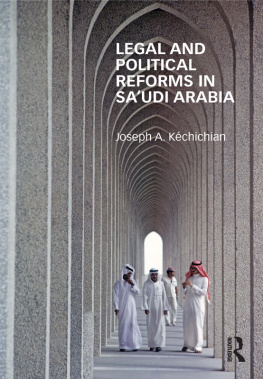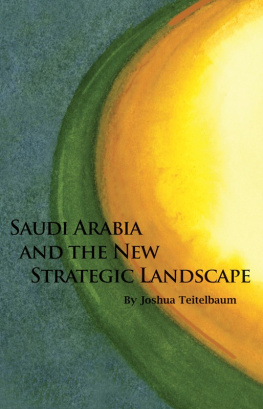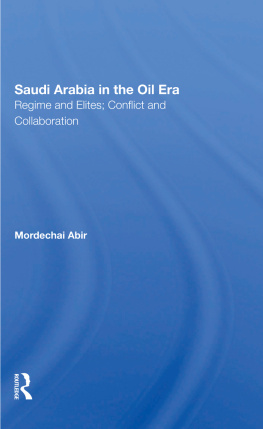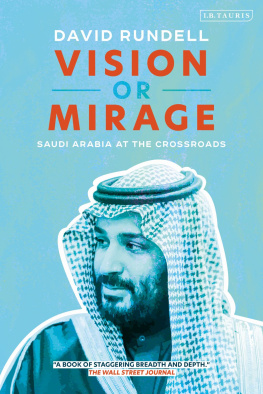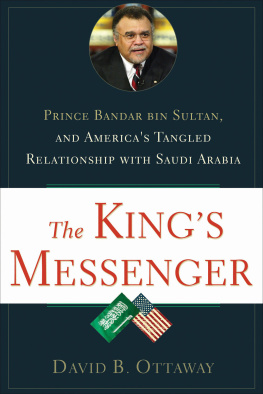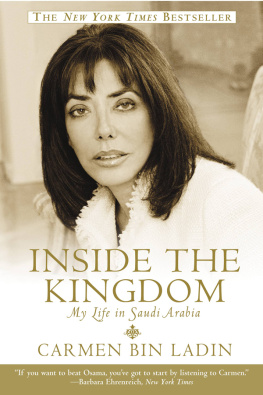No Arab ally of the United States is more important or less understood than Saudi Arabia. Robert Jordan went to Riyadh as our ambassador just after the 9/11 attacks when America was asking which side [the Saudis] were on. His unique personal relationships and superb analyses made it clear that the Saudis stood with us, but we also had to understand them.... Desert Diplomat tells the story of a critical relationship at a critical time, and how a great diplomat, Robert Jordan, can turn the hinge of history. We are at another turnmay we be as wise as he was in making it.
Ryan C. Crocker, former deputy assistant secretary of state, 20013, and former ambassador to Afghanistan, Iraq, and Pakistan
Robert Jordan has written a fascinating and insightful book that provides a rare inside view of Saudi Arabia and the Middle East during the events following 9/11. It is a historically significant work from a seasoned diplomat who draws valuable lessons from his experiences and observations that would be wise for our current and future leaders to heed. Desert Diplomat should be required reading for all those involved in developing our strategy and policy for the Middle East.
General Anthony C. Zinni ( USMC , Ret.), former commander in chief of U.S. Central Command, former special envoy to the Middle East, and author of The Battle for Peace: A Frontline Vision of Americas Power and Purpose
Desert Diplomat
Inside Saudi Arabia Following 9/11
Robert W. Jordan with Steve Fiffer
Foreword by James A. Baker III
Potomac Books
An imprint of the University of Nebraska Press
2015 by Robert W. Jordan
Foreword 2015 by James A. Baker III
Unless otherwise noted, all photographs included in this volume are courtesy of the author.
Cover image is from the interior.
Author photo courtesy of Baker Botts LLP .
All rights reserved. Potomac Books is an imprint of the University of Nebraska Press.
Library of Congress Cataloging-in-Publication Data
Jordan, Robert W., 1945
Desert diplomat: inside Saudi Arabia following 9/11 / Robert W. Jordan with Steve Fiffer; foreword by James A. Baker III.
pages cm
Includes bibliographical references.
ISBN 978-1-61234-670-0 (cloth: alk. paper)
ISBN 978-1-61234-740-0 (epub)
ISBN 978-1-61234-741-7 (mobi)
ISBN 978-1-61234-671-7 (pdf)
1. Jordan, Robert W., 1945 2. AmbassadorsUnited StatesBiography. 3. United StatesForeign relationsSaudi Arabia. 4. Saudi ArabiaForeign relationsUnited States. 5. United StatesForeign relations20012009. 6. September 11 Terrorist Attacks, 2001Influence. 7. Iraq War, 20032011Diplomatic history. I. Fiffer, Steve. II. Title.
E 901.1. J 67 A 3 2015
327.2092dc23
[B]
2015002747
The publisher does not have any control over and does not assume any responsibility for author or third-party websites or their content.
For Kathy and our family, and for the brave men and women who serve in Americas embassies and consulates abroad
Contents
Ambassadors are the Swiss Army knives of Americas diplomatic ranks. They are multitoolspart diplomat, part analyst, and part politician. And, yes, from time to time, they are part spy. They must display the skills and characteristics required to confront challenging tasks, often during trying times. They must have voracious appetites for information yet be discrete when sharing it. They must be as equally charming as they are tough. Above all, they must be smart. An ambassador, as the U.S. Diplomacy Center defines it, is the presidents highest-ranking representative to a specific nation or international organization abroad. They must act accordingly.
The day following the 9/11 attacks on New York City and Washington, President George W. Bush selected exactly the right man when he formally nominated Robert W. Jordan to became the U.S. ambassador to Saudi Arabia. Jordan had already gone through a background check. But by September 12, a lot more was riding on the appointment. Americas relationship with Saudi Arabia would face inevitable strains amid backlash at the Islamic extremists responsible for the terrible bombings that shook the world. Osama bin Laden, after all, was a member of the House of Saud. Having a cool hand in Riyadh would be critical if the United States were to maintain Saudi Arabia as a close ally in this important part of the world. As events in the Middle East unfolded during the two years Jordan was stationed there, that bilateral relationship would be tested time and time again.
Although Jordan had no prior foreign service experience, he had many of the qualities needed to be a model ambassador to the Kingdom. He was intelligent, savvy, and street smart. He was a good negotiator. But above all, he had strong professional and personal ties with the president. An accomplished trial lawyer from Dallas, Jordan had represented Bush when he was a Texas businessman. Although not a part of the presidents inner circle, Jordan and his wife socialized with George and Laura Bush, and he played a key role in Bushs victory over Ann Richards to become governor of Texas. Jordan was his own man with his own code. The president knew that he would always get the skinny from Jordan, and not merely the bureaucratic buttering up that sometimes comes with being the leader of the free world. As the president told Jordan three months after the attacks, the new ambassador would be his point man in Saudi Arabia.
In his memoir Jordan has done a stellar job of telling the compelling story about much of the diplomatic activity that swept the Middle East after 9/11. Saudi Arabia, of course, played a key role. In order for the United States to successfully invade Iraq and oust Saddam Hussein, assistance from neighboring Saudi Arabia was criticalparticularly in using the countrys assets, such as military bases, border crossings, intelligence, and logistics. But more was at stake. It was also critical that Saudi Arabia be viewed by others in the region as supporting the invasion of another Islamic country. This was a pivotal two years for both countries.
Jordan writes with unflinching acuity, providing keen insight into the Arab world as well as the inner workings of American diplomacy during his time as ambassador. He tells about the first meeting between President Bush and Saudi crown prince Abdullah during the Crawford Summit at the presidents Central Texas ranch in April 2002 in the lead-up to the second Gulf War. He tells about the 2003 terrorist bombings at three compounds in Riyadh that left 39 people dead and more than 160 wounded. And he tells of his personal role in helping save the life of Michael Baba Yemba, a Christian pastor from South Sudan who was being persecuted for his faith before Jordan assisted his immigration to Dallas, Texas.
Simply put, Desert Diplomat is an intriguing tale of an interesting man serving his country during an important time in history.
James A. Baker III
Sixty-First U.S. Secretary of State
This book took a long time to write. When I left government I spent hours outlining it and doing research to get the facts and historical context right. But I soon realized that I was writing it as a term paper, not as my personal story. My wife Kathy Donovan helped me realize that I needed to make it a more intimate account of my life at a crucial time for me and for our nation. My friend Jim Hime then introduced me to Steve Fiffer, who had helped former secretary of state James A. Baker III write his terrific memoir. Steve and I immediately clicked. Working from my outline and through countless evenings talking with him in Chicago via Skype from my home in Dubai, Steve helped me add texture and detail to these stories, and he also provided further research. He pressed me on nuances and descriptive elements that I never would have included if left to my own devices. He added a lively and conversational tone to the stories and was a joy to work with. This book would never have been written without Steves enormous contribution.




